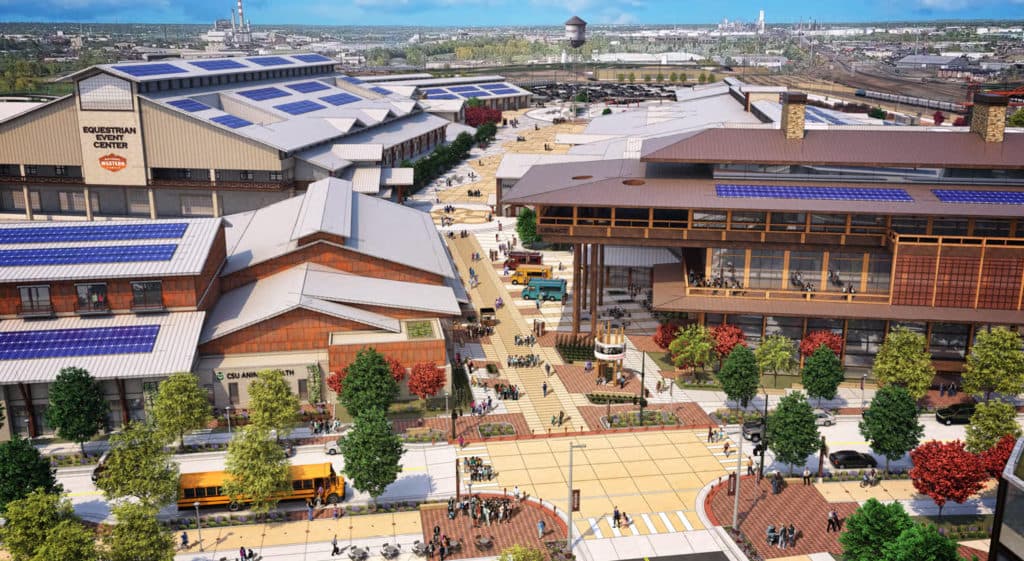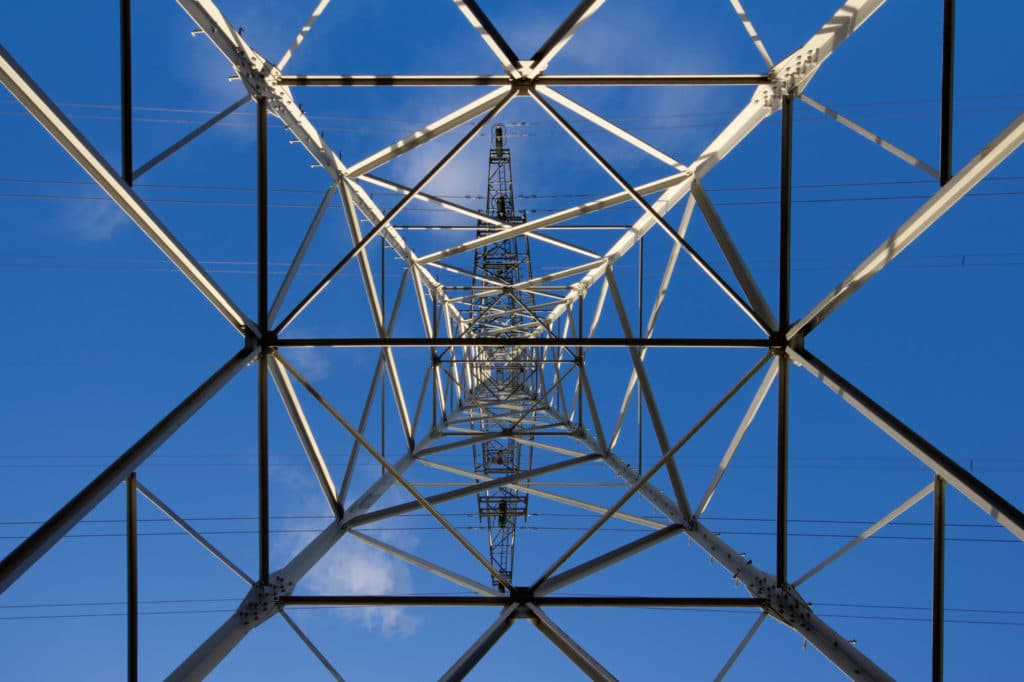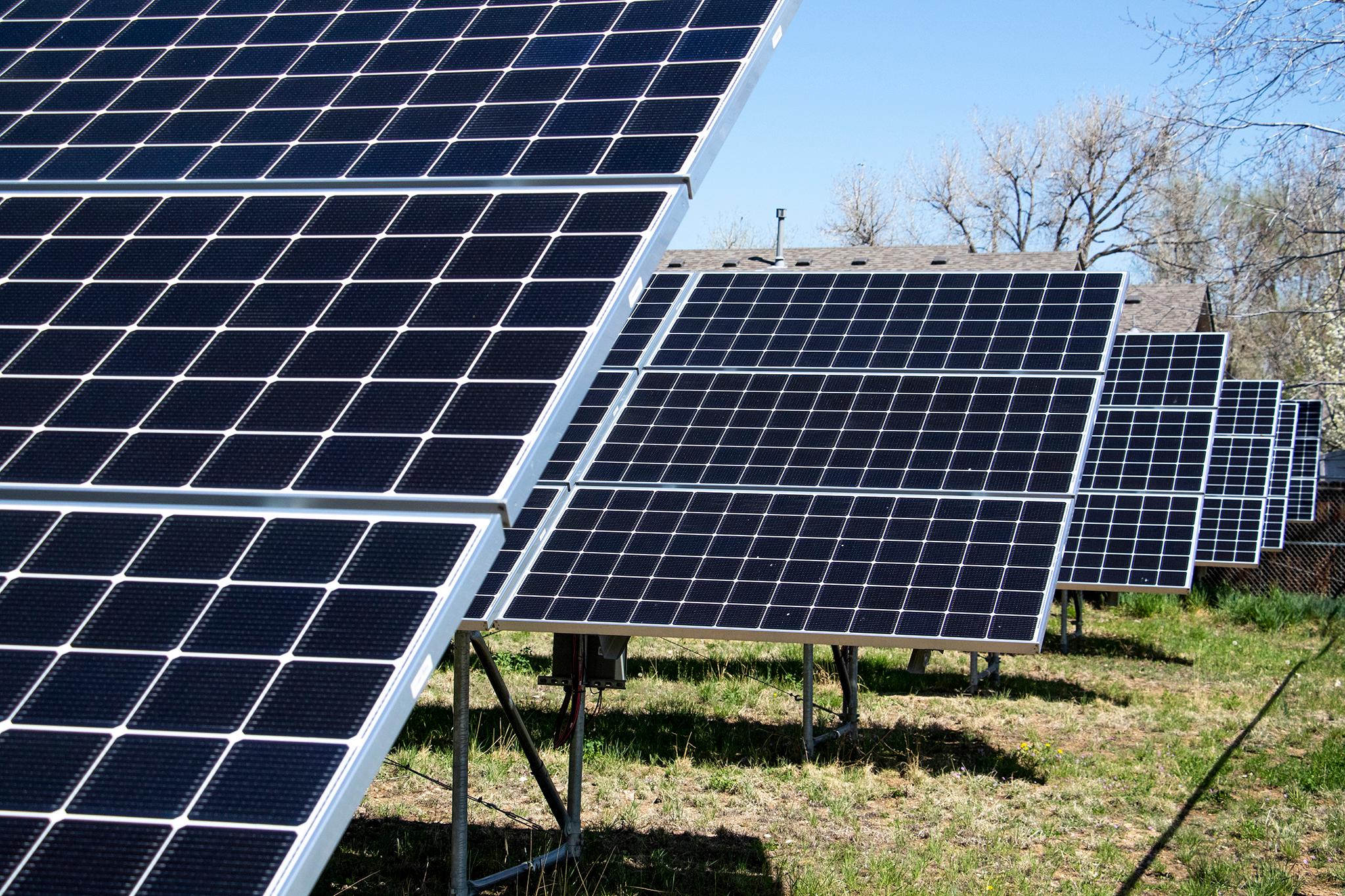It's been more than a year since Denver Mayor Michael Hancock pledged the city to run 100 percent on renewable electricity by 2030. It's an aggressive goal, and achieving it would put Denver among the first major U.S. cities to run completely on renewable energy.
Before diving into the city's progress, it's important to note that '100 percent renewable' may not mean what you think it means. Denver is plugged into a statewide grid run by Xcel Energy, and since the city is not going to disconnect from the grid, there is no way to guarantee that every atom of electricity used in Denver will come from a renewable source.
What Denver's renewable team is doing is working to build renewable capacity on the grid that offsets the city's entire electricity demand. Some of this electricity will be generated in Denver itself, but a large chunk of it will likely have to come from outside the city limits and will serve the grid as a whole.
"We want to make sure that all the energy that we are consuming both as a municipality and a community are contributing to decarbonizing the electricity grid," Jonathan Rogers, a renewable energy specialist with the Denver Department of Public Health and the Environment, explained. "We recognize that we are part of the grid and ultimately the whole system needs to be transformed."
So with that out of the way, let's see if Denver is any closer to reaching its renewable goals.
There aren't any official benchmarks yet.
The renewable goal is only one component of an ambitious city climate plan, and the city government is in the process of breaking down each individual goal in that plan with benchmarks. For the 2030 renewable goal, tracking progress will require a lot of data feedback from Xcel, and the city is still in negotiations to figure out what information will be available. This means that the detailed road map for the 2030 renewable goal won't be done until the end of next year, but in the meantime, the city has done a chunk of the groundwork in evaluating what the city would need to look like for a renewable future to be possible.

City buildings will lead the way.
The city has committed to running all municipal buildings 100 percent renewable by 2025, which makes the municipality a proving ground for the citywide targets. According to Rogers, municipal buildings are being retrofitted to be more efficient and will be equipped with solar panels where it makes sense. The city has already deployed solar on some of its property, including a sizable solar farm near the airport.
City officials are also working to make sure new municipal buildings will meet the highest energy efficiency standards. The National Western Center, a 250-acre campus under construction in the Elyria-Swansea and Globeville neighborhoods, will only include buildings with a LEED sustainability rating of gold or higher. The campus will also be used to help support the grid as a whole and test out new ideas.
"Opportunities like a 250-acre redevelopment of a campus come around only so often," said Brad Dodson, the deputy director for the Mayor's Office of the National Western Center. "This allows for the city to innovate pioneering strategies to see what works in Denver, what works in an urban context and what works in the West."
The goal has pushed Denver to become a testing ground for some pretty cool ideas.
Meeting this goal by 2030 will require innovation, and Denver is testing new technology and novel grid management techniques to make this transition possible. Here are two of those initiatives:
Solar gardens: The city will build solar arrays on municipal buildings that produce more electricity than the building needs. That excess electricity can then be sold off inexpensively to nearby residents to power their homes. The Denver Housing Authority launched its own community solar project in Aurora last year, giving 500 homes in a low-income area access to cheap renewable electricity. Denver is considered a nationwide leader in community solar gardens and plans to use this model to build out a significant amount of the renewable capacity within the city limits.
Wastewater heating: The Western Center is currently developing a piping system to use heat from nearby wastewater pipes to heat and cool the campus's buildings. Not only will this make the Western Center more efficient, it could also reduce the temperature of the treated water released into the Platte River, making it safer for fish and other wildlife.

Denver and other Colorado cities are pushing utilities forward on renewables.
As far as public utilities go, Xcel Colorado has one of the most aggressive carbon reduction goals in the country. There are a few reasons for this, but a significant one is that 15 communities in Colorado have 100 percent renewable goals (though not all of these are on Xcel's grid). Denver makes up almost a quarter of Xcel's energy load in Colorado, so the utility listens when the city starts talking about making major shifts to its electricity.
"We are really excited and encouraged by what our communities have been bringing into the discussion," Alice Jackson, the president of Xcel Colorado, told Denverite. "They give us perspective on what we need to be focusing on. Before these renewable resources were economic, we were already out buying some that were not economic because of these discussions."
The city won't hit it's original 2020 energy goal.
In 2015, Denver released sustainability goals for 2020, including a goal to hold the city's energy use to 2012 levels and cut fossil fuel use by 50 percent. That's not going to happen; both energy use and fossil fuel use have risen.
So then, why should we take the 2030 goal seriously?
According to officials at DDPHE, the 2020 goal was designed to push for action, but wasn't necessarily achievable.
"That goal was very aggressive and very much an aspirational goal," said Liz Babcock, the manager of the Air, Water, Climate Section at the Department of Public Health and the Environment. "When we did the [new climate action plan] we wanted to align those goals with the science."
Babcock says the new 2030 goal, though still aggressive, is more reasonable.
Will Denver hit its goal this time?
Without the data benchmarks promised for next year, it's hard to say if Denver will reach the goal, but there are reasons to believe that the city is in a better position now than it was to meet it's 'aspirational' goals of the past.
First, the state of Colorado has set a goal to be 100 percent renewable by 2040, and Xcel has adopted an aggressive plan to decarbonize the grid. With both the state and the utility working in the same direction, it will be easier to get new projects off the ground.
Second, and most importantly, the cost of renewable electricity has dropped below that of coal and in some cases natural gas. This cost-effectiveness is already driving utilities towards renewables, and it will also make any projects by the city or residents more feasible.
"I approach this more confident than ever that now is the time that economics line up, public interest lines up, laws and enforcement line up," Rogers said. "I don't mean it's going to be easy but we have a better chance now than we ever had had in the past. "













